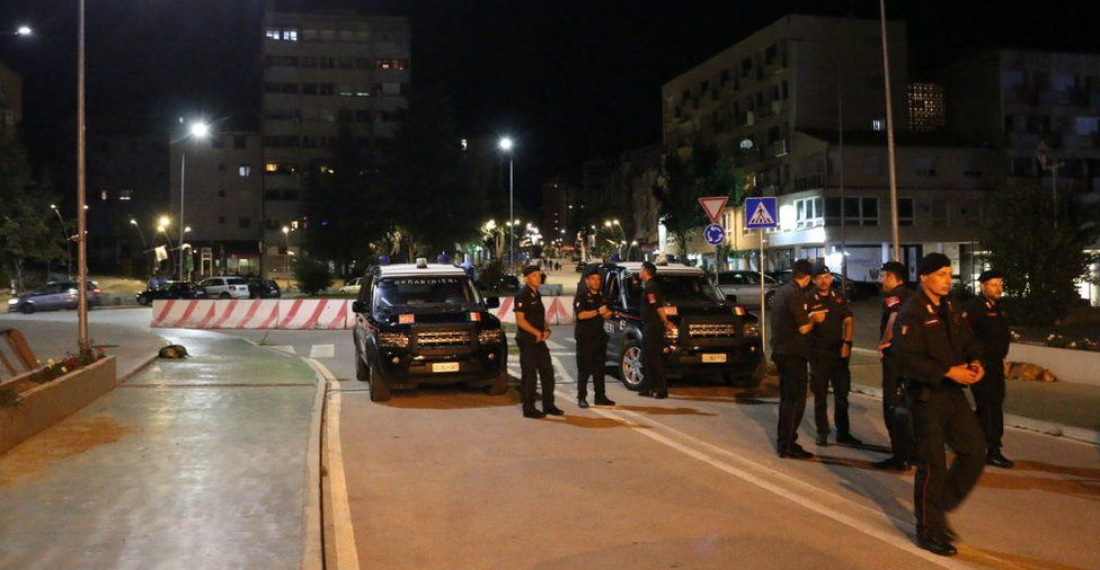A flurry of diplomatic activity on Sunday night helped defuse tensions between Kosovo and Serbia which saw both sides mobilising police and military forces.
The crisis revolved around a decision of the government of Kosovo that would introduce new rules requiring Serbs in Kosovo to swap their Serbian-issued car number plates for Kosovan-issued ones.
The rules were due to come into force at midnight on Monday.
But on Sunday ethnic Serbs in the north barricaded roads and armed men fired shots in protest.
The rules' implementation has now been delayed for a month following consultations with the US and EU.
NATO described the situation as "tense" as hundreds of ethnic-Serbs parked trucks, tankers and other vehicles near two key border crossings with Serbia in protest over the new rules, forcing the police to close the two crossings.
The mission led by the alliance in Kosovo, KFOR, said it was "prepared to intervene if stability is jeopardised, in accordance with its mandate, coming from UNSC resolution 1244 of 1999."
— @NATO - KFOR (@NATO_KFOR) July 31, 2022
During a tense Sunday evening there were reports that the Serbian army had entered Kosovo but these reports were immediately denied by the Serbian government. NATO troops, including elements of the Italian Carabenieri were also seen deploying to some strategic points.
The rise in tensions led to consultations with US and EU ambassadors.
US Ambassador Jeffrey Hovenier said he asked Kosovo's government to delay the enforcement of the license plate ruling for 30 days "because it seems that there was misinformation and misunderstanding about the decision."
Kosovo then agreed to delay the new rules for 30 days.
The EU's Foreign Policy High Representative, Josep Borrell, welcomed the announcement in a tweet and said he expected all roadblocks to be removed immediately.
Serbian President Alexandar Vucic also said he expected tensions to "de-escalate" following the rules' postponement.
Tensions between Kosovo and Serbia continue despite the two sides having committed to engage in EU-sponsored dialogue to try to resolve longstanding issues.
source: commonspace.eu with BBC London, KFOR (Pristina) and agencies
photo: Kosovo special forces were mobilised on Sunday night amid tensions with Serbia (picture courtesy of BBC, London and Getty images)







